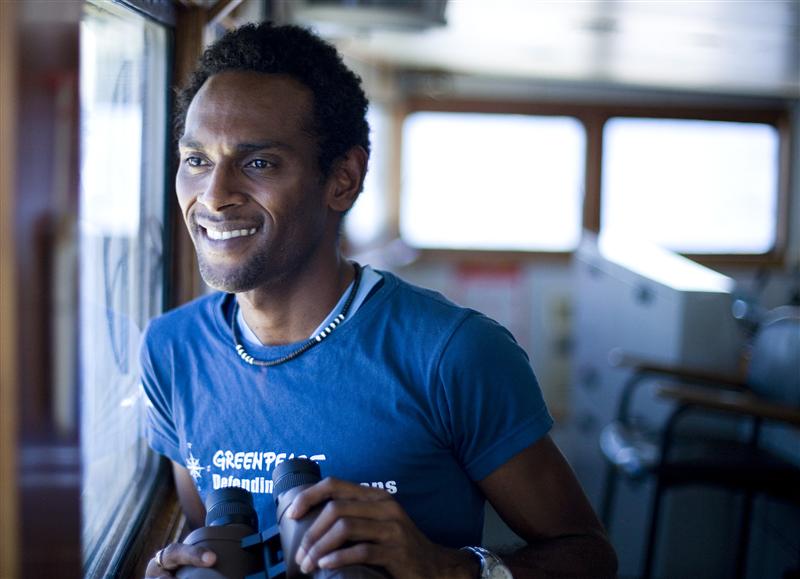Tuna is the lifeline for many Pacific island communities – a source of income, jobs and food. That’s why, as a Pacific islander and someone who has been working on oceans conservation for over a decade, I am still very angry at the inaction of the people who are meant to be “managing” our oceans.
 I have always believed those fisheries managers are more interested in keeping the fishers and their boats in the water than the fish and we at Greenpeace are working around the world trying to change that. Let me tell you how we try to defend our oceans here in the waters of the Pacific.
I have always believed those fisheries managers are more interested in keeping the fishers and their boats in the water than the fish and we at Greenpeace are working around the world trying to change that. Let me tell you how we try to defend our oceans here in the waters of the Pacific.
Greenpeace has conducted five ship expeditions in the Pacific for the oceans campaign in recent years, four of which I have led. During each one, we expose what is really happening at sea and take action if necessary. What we find out in the ocean is usually much different to what the fishing industry would have you and the politicians believe.
During our most recent 2011 Defending our Pacific tour, the Esperanza encountered 63 fishing vessels in total, including an illegal and unmarked (unflagged) purse seine vessel fishing with six support ships in what appeared to be a group operation out in Pacific Commons area 1. We were there while a ban on all purse seine fishing activities in this area was in place. It is important that the people who put these bans in place – the ones meeting in Guam at the WCPFC next week – know that violations are more common than exception, and therefore we need more protections for the Pacific, not fewer..
We also monitored some of the more than 3,000 longline fishing ships allowed to fish in this region. We documented eight longliners in Pacific Commons area 3 over five days and several in Pacific Commons area 2 over three days. Most were licensed to and/or owned by Taiwan, Korea, China or Japan. Many of them are technically allowed to fish only in international waters, meaning they pay no fishing license fees to the Pacific governments to fish in the region, yet they fish the region’s tuna away.
The reality is that we were only at sea for three months and those are big oceans out there. But we saw a lot of fishing ships doing things they shouldn’t be doing in places they aren’t meant to be in the first place. We are fishing as if the fish will last forever but it’s clear that they won’t. We need better management otherwise we’ll lose the Pacific tuna, the fishing jobs, and the food and income they provide for so many.
So I am here in Taiwan today, the region’s largest fishing power when it comes to the number of fishing vessels in the Pacific, to share my experiences from various ship expeditions and to publicly launch the results of our 2011 ship tour investigations and documentations. Taiwan is critical to the future of the Pacific Ocean, so I’m helping the team here push for the Taiwanese government to save our oceans for all of us, not just the narrow fishing industry interests.
If we want tuna and fishing for the future, we need full closure of the Pacific Commons to all fishing; the ban on the use of Fish Aggregating Devices in purse seine fisheries and 50 percent reduction in bigeye tuna catches at the Pacific Tuna Commission meeting in Guam beginning on Monday. Sign a petition here for the decision makers of Taiwan, South Korea, USA and Philippines to support our region’s sustainable future.
Lagi Toribau is the Greenpeace Australia-Pacific oceans team leader based in Fiji.

